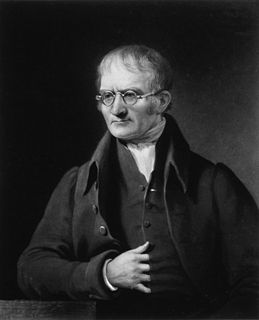A Quote by Swami Vivekananda
The vapour becomes snow, then water, then Ganga; but when it is vapour, there is no Ganga, and when it is water, we think of no vapour in it. The idea of creation or change is inseparably connected with will. So long as we perceive this world in motion, we have to conceive will behind it.
Related Quotes
What I have related is sufficient for establishing the main principle, namely, that the heat which disappears in the conversion of water into vapour, is not lost, but is retained in vapour, and indicated by its expansive form, although it does not affect the thermometer. This heat emerges again from this vapour when it becomes water, and recovers its former quality of affecting the thermometer; in short, it appears again as the cause of heat and expansion.
Salt water when it turns into vapour becomes sweet, and the vapour does not form salt water when it condenses again. This I know by experiment. The same thing is true in every case of the kind: wine and all fluids that evaporate and condense back into a liquid state become water. They all are water modified by a certain admixture, the nature of which determines their flavour.
The cause of rain is now, I consider, no longer an object of doubt. If two masses of air of unequal temperatures, by the ordinary currents of the winds, are intermixed, when saturated with vapour, a precipitation ensues. If the masses are under saturation, then less precipitation takes place, or none at all, according to the degree. Also, the warmer the air, the greater is the quantity of vapour precipitated in like circumstances. ... Hence the reason why rains are heavier in summer than in winter, and in warm countries than in cold.
With the Holy Mother as the centre of inspiration, a Math is to be established on the eastern bank of the Ganga. . . . On the other side of the Ganga a big plot of land will be acquired, where unmarried girls or Brahmacharini widows will live; devout married women will also be allowed to stay now and then. Men will have no concern with this Math.
This Maya is everywhere. It is terrible. Yet we have to work through it. The man who says that he will work when the world has become all good and then he will enjoy bliss is as likely to succeed as the man who sits beside the Ganga and says, "I will ford the river when all the water has run into the ocean."
The sun, moving as it does, sets up processes of change and becoming and decay, and by its agency the finest and sweetest water is every day carried up and is dissolved into vapour and rises to the upper region, where it is condensed again by the cold and so returns to the earth. This, as we have said before, is the regular course of nature.
With lacquerware there is an extra beauty in that moment between removing the lid and lifting the bowl to the mouth, when one gazes at the still, silent liquid in the dark depths of the bowl, its colour hardly differing from that of the bowl itself. What lies within the darkness one cannot distinguish, but the palm senses the gentle movements of the liquid, vapour rises from within, forming droplets on the rim, and the fragrance carried upon the vapour brings a delicate anticipation ... a moment of mystery, it might almost be called, a moment of trance.
The rain is plentious but, by God's decree,
Only a third is meant for you and me;
Two-thirds are taken by the growing things
Or vanish Heavenward on vapour's wings:
Nor does it mathematically fall
With social equity on one and all.
The population's habit is to grow
In every region where the water's low:
Nature is blamed for failings that are Man's,
And well-run rivers have to change their plans.
There is a distinct layer between the Earth and the universe, which is extremely black. Slowly, the entire universe starts to look 3D, like you can fly through it rather than this sphere of blackness overhead. And when you're above the atmosphere, there isn't water vapour in the air to make things foggy.
Attributing global climate change to human CO? production is akin to trying to diagnose an automotive problem by ignoring the engine (analogous to the Sun in the climate system) and the transmission (water vapour) and instead focusing entirely, not on one nut on a rear wheel (which would be analogous to total CO2) but on one thread on that nut, which represents the human contribution.

































